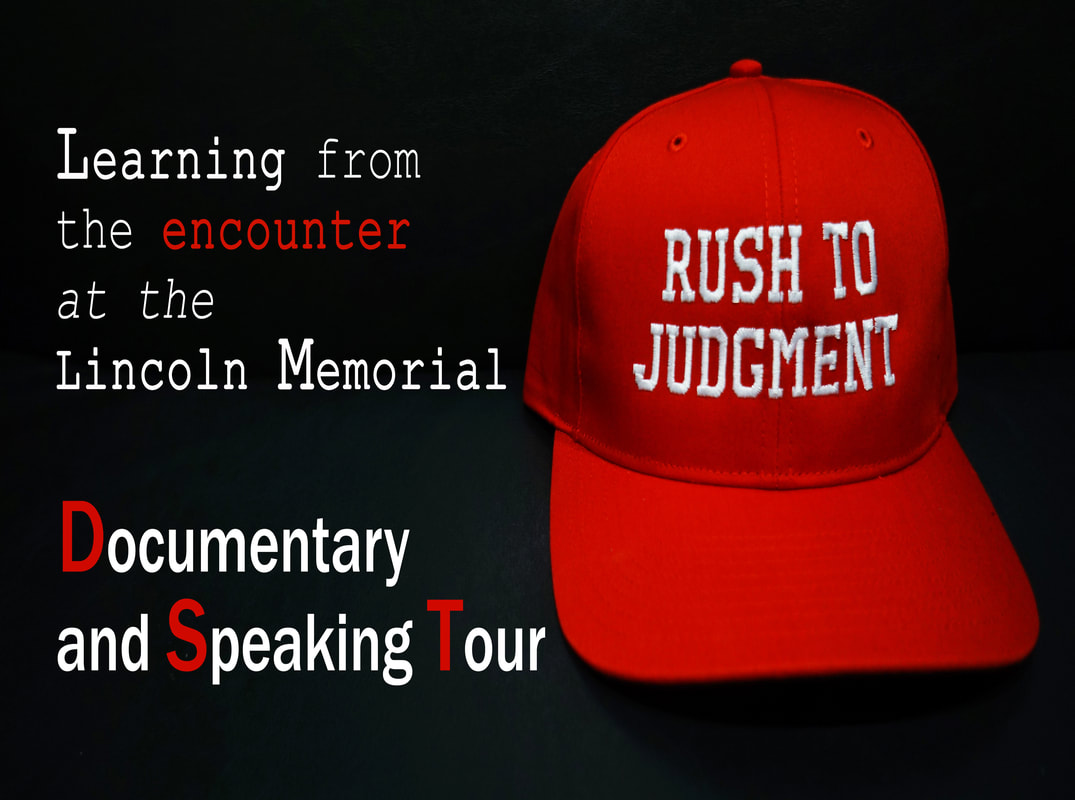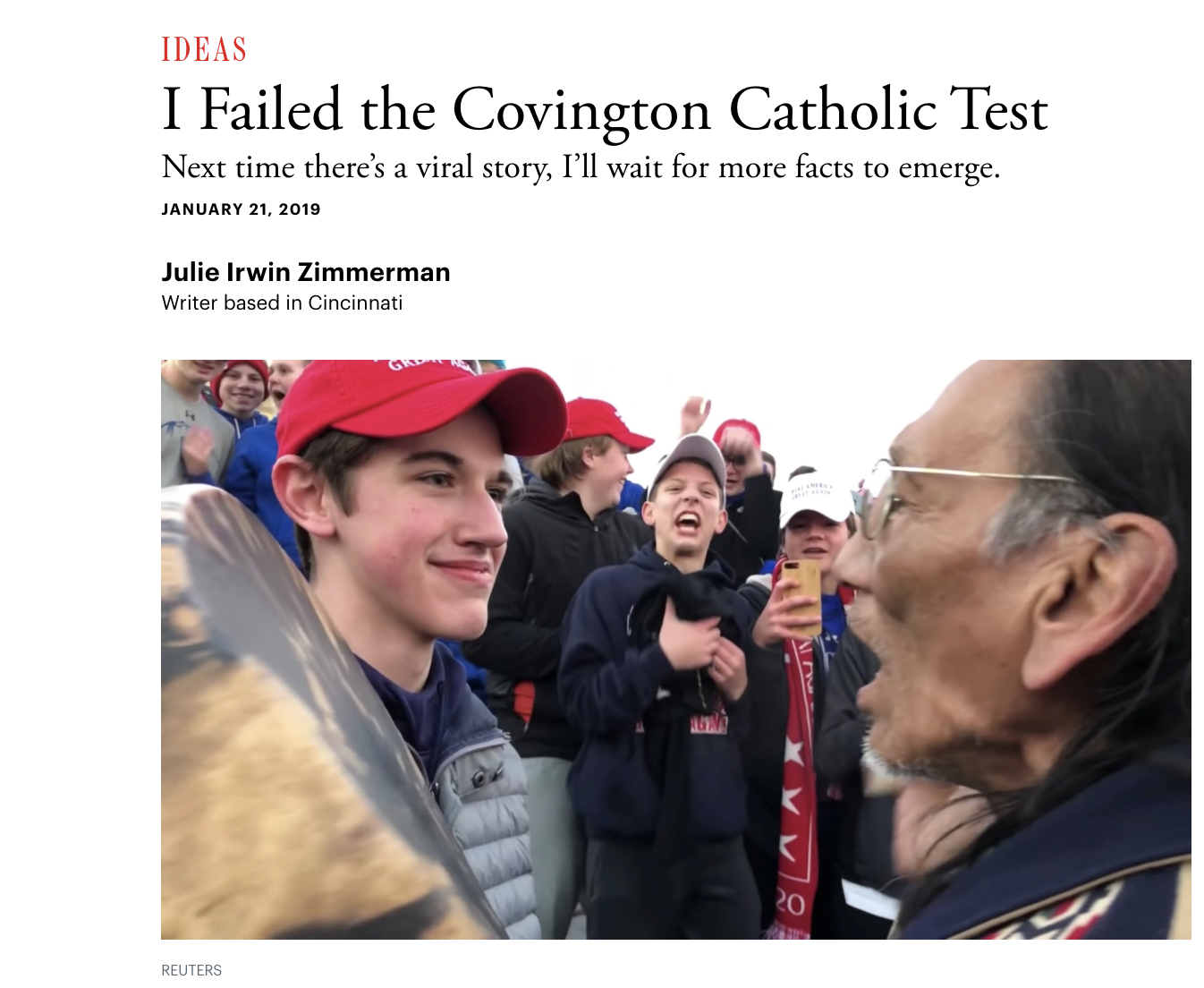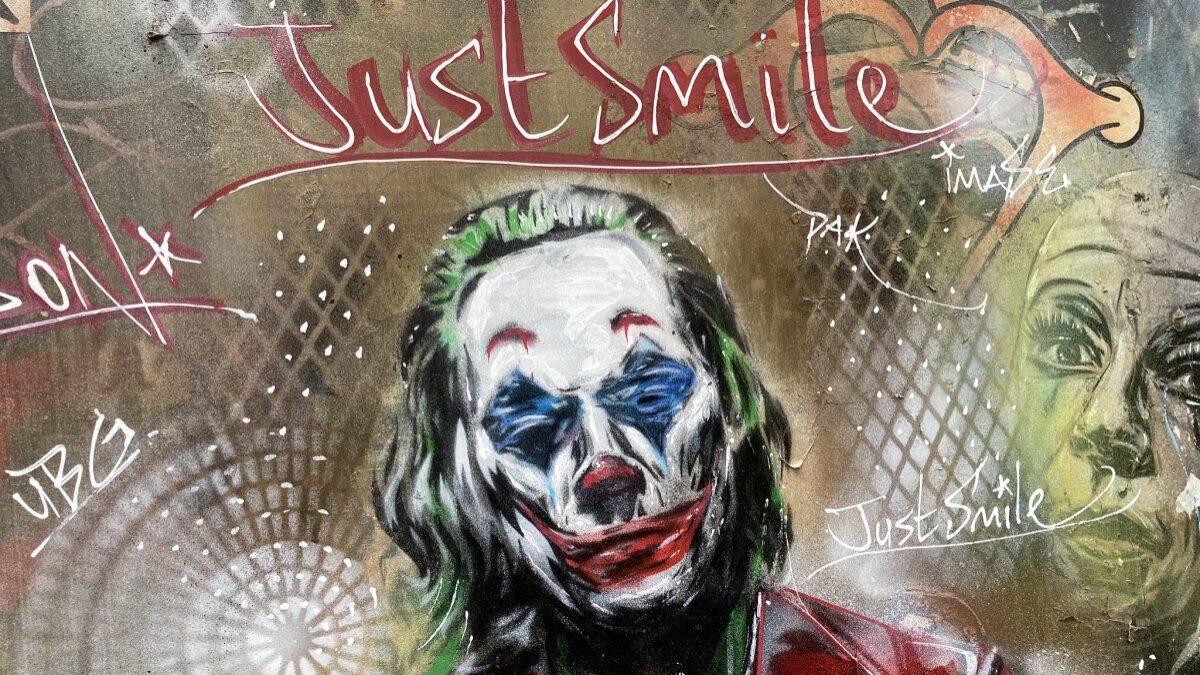
“Rush to Judgment” is an important and timely documentary about leftist ideology on social media and the mob who pounces inexhaustibly. In 2019, they famously pounced on Nick Sandmann, an innocent teen wearing a MAGA hat. This is that story.
In July 2020, filmmakers Steve Oldfield and Ryan Anderson were set to premiere their documentary “Rush to Judgment” at the Anthem Film Festival. But due to COVID-19 restrictions, the libertarian-leaning showcase was canceled. “Rush to Judgement” would have premiered in the same prime-time slot as Adam Carolla and Dennis Prager’s “No Safe Spaces” in 2018.
Nonetheless, Oldfield told me that he is working with several colleges across the country to begin a tour, including a premiere and lecture-seminar format. The filmmakers are also working on replacing the documentary at a festival.

The documentary is a comprehensive study into the media’s character assassination of Sandmann and the students at Covington Catholic High School in 2019 at the Lincoln Memorial. After videos went viral on social media that depicted Sandmann in a MAGA hat staring at Native American activist Nathan Philipps, the mainstream media took the opportunity to presuppose his racism. They molded the teenagers into the narrative they had been pushing about Trump supporters since his election; that they are all racist and evil.
Among other details omitted from the one video that would slander Sandmann for simply standing still, the media neglected the group of Black Hebrew Israelites harassing the students prior to the Phillips encounter—calling them “school shooters,” “dirty a— little crackers,” and “a bunch of incest babies.”
Little did The Washington Post, CNN, and NBCUniversal know that almost a year later they would be forced to settle in the defamation lawsuits against Sandmann, for undisclosed sums.

Steve Oldfield, the director of “Rush to Judgment,” felt compelled to tell this story. Oldfield covered Hollywood and culture for many years for Fox19 and graduated from neighboring school Covington Latin in Northern Kentucky.
When Oldfield awoke on Jan. 19, 2019, his phone was blowing up with Facebook posts from friends and colleagues at The New York Times, The Washington Post, CNN, and NPR lambasting Sandmann without evidence. He began to defend the boy, unaware it would lead to an entire documentary.
‘I realized I’ve got an in. I’m going to do a documentary.’
“I called a friend of mine who worked at the school as an assistant principal. I said, ‘I need to know what’s going on here. Is this kid a racist? Is this kid a monster?’ And she said, ‘No, he’s great and from a solid family.’ So I realized I’ve got an in. I’m going to do a documentary. And I called a friend of mine who is much more left-leaning than I am,” Oldfield told me. “I thought ‘That will kind of balance it out a little bit.’ We met on a Sunday and came up with the name ‘Rush to Judgment,’ and on Monday I covered a protest in favor of Nathan Philipps, against the kids, that was held at Covington Latin.”
In the documentary, Sandmann expresses his rationale for the biased media coverage, and why he and his friends were given brutally unfair treatment: “Their rush to judgment I think was aided by the fact that Nathan Phillips had put out four or five interviews by the time I was able to talk.”
His father, Ted, recalls the threats his family received after the video went viral.
“We know where you live,” people told him, “we’re going to put your son six feet under.” He also recounted in the film his changing perception of leaving his home. “Every time you step out the door, you’ve got to realize now that I’m not in the safety of my home,” Ted said. “I’m out here, and the world has changed.”
“Rush to Judgment” is being represented by Contemporary Issues Agency to help deliver their message to college campuses, so they can engage students on media and fact-checking in a seminar that features a presentation of the film. The agency is left-leaning and represents a lot of figures from the Black Lives Matter movement. They are working with the filmmakers because they believe the story is a good lesson for young Americans.
It is the most unlikely bond anyone could have foreseen, but something the director was not as shocked about given what happened.
“They saw our documentary and they were like ‘This isn’t a right-wing thing, this is a what is the right thing, as in correct.’ Everyone should use civil discourse online, whether you are a Democrat or a Republican or a Libertarian,” Oldfield said. “You shouldn’t just retweet something because it angers you, and you don’t say the most horrible thing you can think of to virtue-signal to show you’re woke. That goes for whether you are Donald Trump follower or a Bernie Sanders follower.”
Julie Irwin Zimmerman, an Atlantic contributor, appears in the documentary to discuss her failure in 2019 to report on the facts of the Covington Catholic story. Zimmerman is one of many who “failed the Covington Catholic test,” as her apologetic piece outlined on Jan. 21, 2019. “I ultimately blame news consumers for prizing emotion over facts,” Zimmerman says in the documentary.

While Zimmerman is right to blame the news consumers, it seems like a deflection to not foremost blame the newsmakers who allow themselves to be guided by unthinking consumers.
While Sandmann was the undoubtedly biggest recipient of the media shame and hate, the documentary uncovered information about an African-American student at Covington Catholic named Bo who was attacked by the Hebrew Israelites. The boy was traumatized by the event and subsequently homeschooled. His father, Lee, told me he is doing well now and headed to college.
“This affected not just Nick Sandmann,” the director said, “But a bunch of other kids as well at the school. We were the only people to get [the boy] and his family to do interviews.”
Another student at the high school was misidentified by the media as Sandmann in the first 24 hours of the incident. He was not even in Washington, D.C. According to the filmmakers, the boy and his mother received several death threats and the authorities had to post a police officer outside their home in Kentucky. At the time, the student’s brother was being married and the family was celebrating.
These additional disturbing narratives are what “Rush to Judgment” makes an intimate effort to highlight—the ones unseen and unheard by the larger public because of the media’s quench for views and clicks, even if it means ruining the lives of teens.
The following year, the Sandmann family hired private security so they could attend the 47th Annual March for Life event in Washington, D.C. “We had people who had tried to scare us into not going,” Nick said, “But it’s something I value way too much to not go to.”
“And second,” Nick continued, “I wanted to show everyone that I’m not scared to stand up for what I believe in, once again.”
“We all wanted to go back,” Ted Sandmann said, “We knew we had to go back.”
In 2020, Nick Sandmann addressed the nation at the 2020 Republican National Convention. “My life changed forever in that one moment,” he said, referring to the misconstrued encounter at the Lincoln Memorial.
The filmmakers of “Rush to Judgment” have a speech at a school scheduled for next month. While the filmmakers are pleased to be presenting Sandmann’s story on college campuses, they are also still searching for a new home for “Rush to Judgment,” and believe that this a story the nation cannot possibly ignore.
Head to the website to learn more about the bold filmmakers’ plans.









